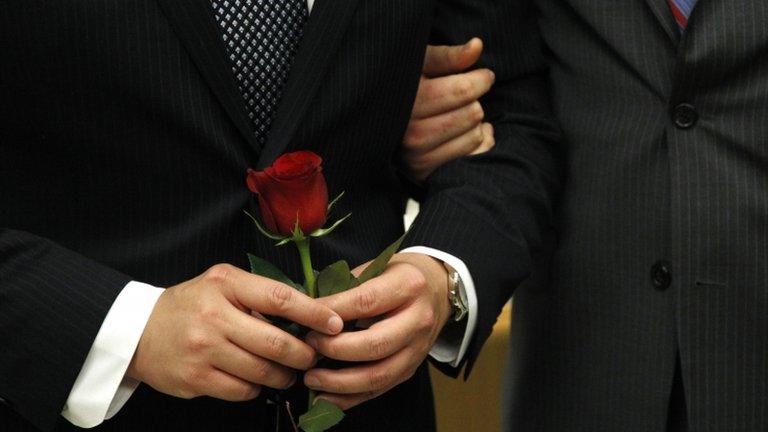Gay marriage law comes into effect in Scotland
- Published
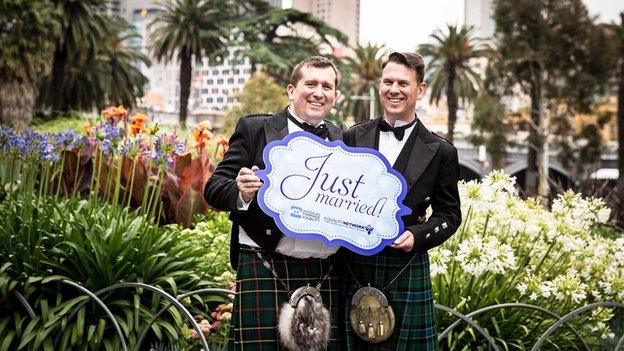
Douglas Pretsell and Peter Gloster formalised their marriage in Sydney
Scotland's new law on same-sex marriages has come into effect.
Existing civil partnerships can now be converted to a marriage and other same-sex couples can give notice of their intention to wed.
The new legislation was used for the first time shortly after midnight when one couple upgraded their civil partnership at the British consulate in Sydney.
The first gay weddings in Scotland will take place on Hogmanay.
Because Australia is 11 hours ahead, Douglas Pretsell, from Edinburgh, and Peter Gloster, from Melbourne, completed the paperwork to formalise their marriage hours before registrars open for business in Scotland.
The couple have been together for seven years and had their civil partnership in August 2010 at Fenton Tower in North Berwick, East Lothian.
'It's official'
Mr Pretsell told BBC Radio's Good Morning Scotland programme: "It was kind of coincidental. we weren't originally intending to be the first at all.
"We sent an email to the consulate asking how long after the weddings came in that we would be able to change our certificate.
"We got an email back from them, asking if we would be able to come in at 11am on the 16th and saying we would probably be one of the first in the world."
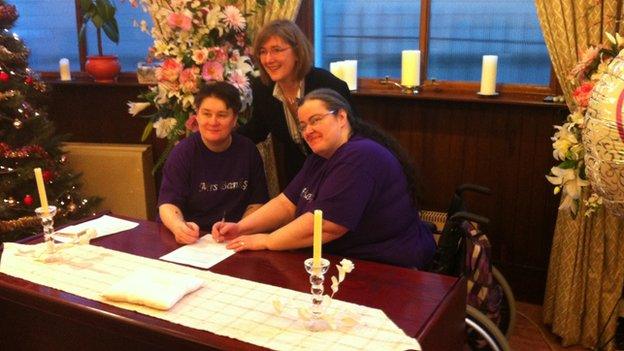
Leanne and Marie Banks were one of the first gay couples in Scotland to become married
The couple earlier said: "We always considered our civil partnership to be our marriage, but in the eyes of the law and society it wasn't held in the same regard.
"Prior to today, same-sex couples were deliberately treated as though our relationships were inferior and not worthy of the same recognition or respect.
"Well, from today it's official, we are married and we have the certificate to prove it."
'Day of celebration'
One of the first gay couples to become married in Scotland were Leanne and Marie Banks.
They were at Dundee Registrars' office at 08:45 to sign the documents.
A number of other Scots couples, already in civil partnerships, are also planning to make the conversion.
Others wishing to become married must give the normal 15-day notice period, meaning the first weddings can take place on 31 December.
Tom French, from the Equality Network, which ran the campaign for equal marriage in Scotland, said: "Today is both a day of celebration and a hugely important step forward for LGBTI rights in Scotland, both in terms of equality in the law and the way in which same-sex relationships are viewed in society.
"In recent years Scotland has become a leading light on LGBTI equality, with one of the most progressive equal marriage laws in the world, helping to create the fair and equal society we all want to see."
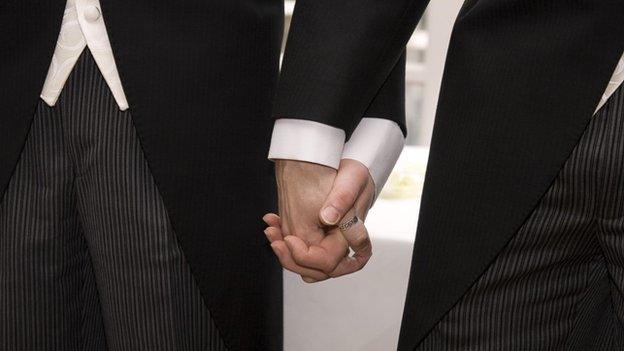
The first gay weddings in Scotland will take place on 31 December
Colin Macfarlane, director of Stonewall Scotland, said: "Many of the couples celebrating today and in the weeks and months ahead have been together for decades and in a civil partnership since they were introduced in 2005.
"While there is still lots to do before the lived day-to-day experience of many lesbian, gay, bisexual and transgender people is truly equal in Scotland, this is a day of celebration and we know these ceremonies will be a wonderful early Christmas present for many couples, their friends and families.'
The law on same-sex marriages has already changed in England and Wales.
The change in Scotland comes as a survey revealed a huge rise in support for same-sex marriage over the past 12 years.
More than two-thirds of people (68%) agreed that gay couples should have the right to marry, according to the figures from the Social Attitudes Survey, which tracks public opinions on a range of subjects.
The figure compares with just two-fifths of the public (41%) in 2002.
The 2014 survey suggested fewer than a fifth (17%) of Scots were against same-sex marriage, compared to 29% in 2002.
Younger people were more likely to believe gay couples should be allowed to wed than older Scots, with 83% of 18 to 24-year-olds in favour compared to 44% of those aged 65 and above.
MSPs approved the Marriage and Civil Partnership Act at Holyrood earlier this year.
The Scottish government said the move was the right thing to do, but Scotland's two main churches - the Catholic Church and Church of Scotland - are opposed.
The legislation will see religious and belief bodies opting in to perform same-sex marriages, and ministers have stressed that no part of the religious community would be forced to hold such ceremonies in churches.
- Published13 October 2014
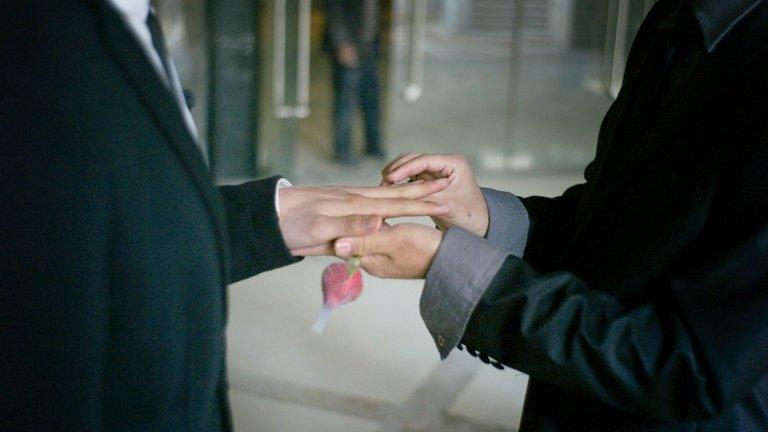
- Published4 February 2014
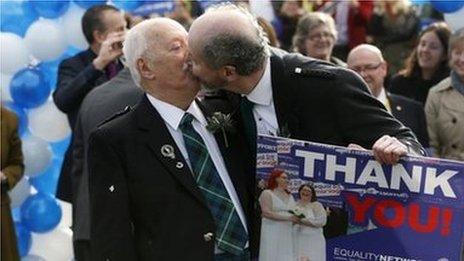
- Published27 June 2013
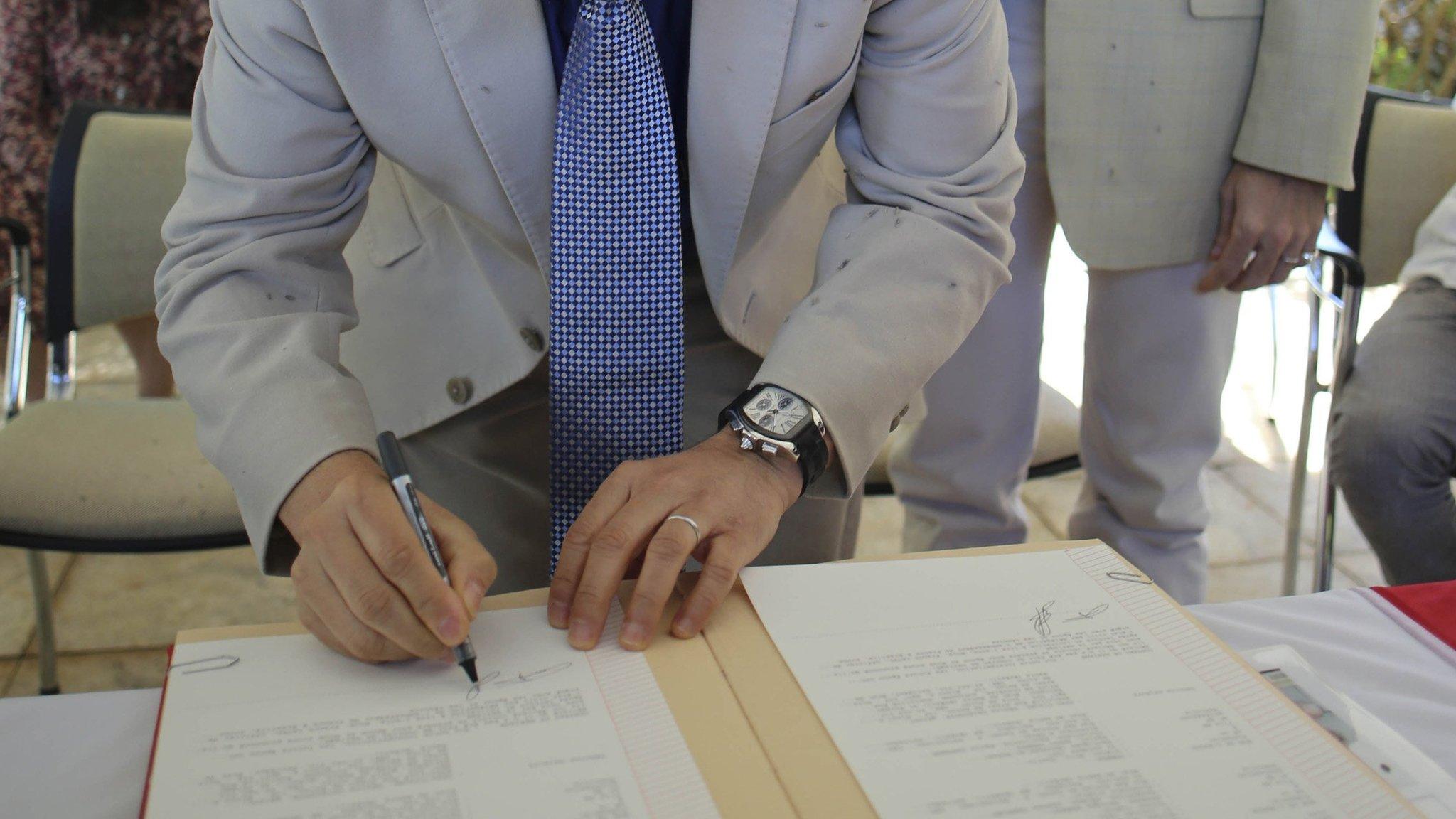
- Published28 May 2013
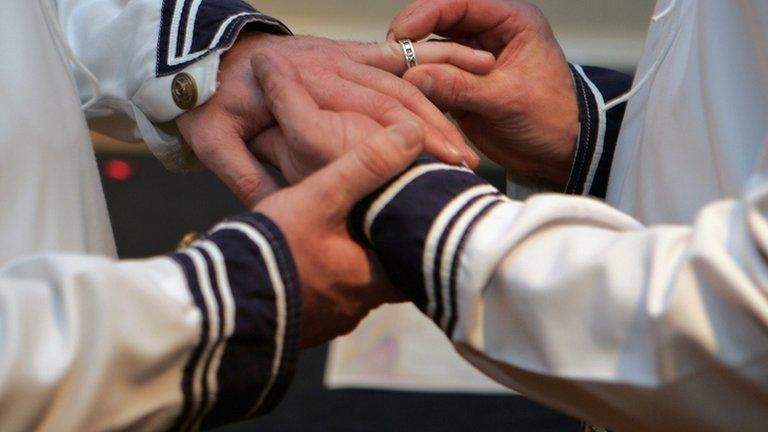
- Published21 May 2013
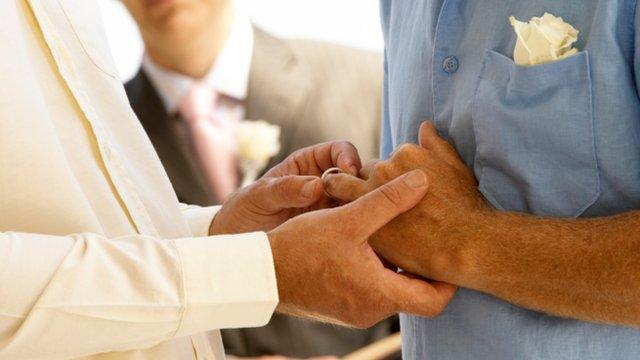
- Published12 December 2012
